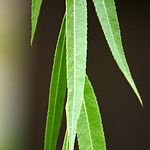Smallholders Worm Advice Service
SUBMISSION FORMS
£16..50 FOR UP TO 5 NAMED SAMPLES
£2.00 ADD-ON SAMPLES
POST-TREATMENT SCREENING
POST TO: EMILY AT TOMTEBO, NICKLEY WOOD, ASHFORD, KENT TN26 1LZ
Results will be emailed within 7 days
(80% are complete within 48 hours)
2025: Sorry, our books are full - we can't take on any new clients
If you have sent us a sample before - then please continue to send your samples to Emily as usual

TORTOISES ¶sites
Submission
Form
Our garden tortoises are exposed to higher worm burdens than their wild counterparts.
We analyse tortoise faeces for all worms and flagella
Recommended WEC testing frequency: 2 times per year
Ideally September - allows time to worm before hibernation
Tortoise WEC: £12.50
up to 5 named samples
(we only need half a teaspoon of Tort poo)

Impacting intestines causing obstruction

can be up to 10cm long

under the microscope

Impacting intestines causing obstruction
ASCARIDS
aka the Large Roundworm Nematodes:
Angusticaecum
SYMPTOMS
Large, thick white worms, up to 10cm long
Diarrhoea
Lethargy
Slow growth rate
Can migrate through other organs
Death through bowel rupture in extreme burdens

Look hideous but might be helpful

Yuk, but possible good guys

Look hideous but might be helpful
pinworms
aka Oxyurids:
SYMPTOMS
Small thread-like worms
Unknown -
these guys live in the large bowel feeding on poo
They may even be helpful by preventing constipation
Can survive hibernation by going into stasis alongside their host

Microscopic mobile bugs

Hexaminta can cause slimy urine & renal failure

Good poo should solid and well digested

Microscopic mobile bugs
flagellates
Trichomonads
Hexamita
SYMPTOMS
Microscopic Bugs
Heavy burdens in causes:
Anorexia
Reduced gut motility
Diarrhoea
Poor growth rate
Hexamita causes renal failure if it migrates up from the cloaca to the kidneys, with slimy urine

diarrhoea

Lifecycle

weakness

diarrhoea
cryptospoidium
aka Crypto
SYMPTOMS
microscopic parasite
Diarrhoea (often pasty)
Blood & mucus in faeces
Can be fatal
Worming Treatment Options

Fenbendazole
Treats: ascarids (roundworms) and oxyurids
Brand names: Panacur, Lapizole, generic 2.5 or 10% fenbendazole
Broad spectrum. Liquid - easy to accurately dose and administer.
Can be given at 25 mg/Kg once daily in food for 3 days, or at 50-100 mg / Kg as a single dose by stomach tube (never give medicines direct by mouth as windpipe entrance is on the base of the tongue - too easy to aspirate)
Repeat after 3 weeks if clinical symptoms seen
Drug
Method
Dose
Fenbendazole
Oral liquid
25 - 100 mg / Kg

Metronidazole
Treats: Flagellates
Brand names: Flagyl, Eradia, generic metronidazole
Oral liquid. POM-V a prescription from your vet is required
Not particularly palatable - best administered directly by stomach tube. If regurgitated a tablet can be crushed into water and given by tube
Various doses recommended: Jackson (1977) suggests 160mg/kg every 24 hours for 3 days. Donaldson (1975) suggests a single large dose of 275mg/Kg. Zwart (1987) suggests 25mg/Kg over 10 days.
Drug
Method
Dose
Metronidazole
Oral Liquid
25 - 275 mg/Kg

High tannin diets
Plants: ladys mantle (alchemilla), Meadowsweet, Shephers Purse, young willow tree leaves, greater plantain, flat-leaved plantain, blueberries, legumes, pink - purple edible flowers
Substantial evidence has proven high tannin diets prevent & reduce worm infestation in the ruminants
These foods are well tolerated by tortoises (although high tannins makes leaves taste bitter)
Anecdotal evidence supports tortoises with high weed & flower diets have lower worm burdens
We are running a clinical trial to monitor the effect of Diatomaceous earth & high tannin diets - watch this space
Drug
Method
Dose
NONE
liquid
1.5ml / bird for 3 days

Diatomaceous Earth
Ingredients: microscopic fossilized diatoms, ground into a powder
Brands: generic, multi-mite
DE works by physically traumatizing the external walls of parasites.
Multiple clinical trials have proven significant reductions of worms burdens in birds from roundworms such as ascarids & oxyurids, with some effect against coccidia. No trials have been conducted in reptiles
We are running a clinical trial to monitor the effect of Diatomaceous earth & high tannin diets - watch this space
Drug
Method
Dose
NONE
powder added to food
1/2 tsp / tortoise for 3 days

controltips
Good parasite control is about more than regularly using a wormer
You can reduce risk & use of anthelminthic drugs:
-
Avoid overcrowding
-
Avoid using damp areas of the garden
-
Feed on a tile or slate
-
Keep grass short to increase sunlight on the earth
-
Rotational graze if possible
-
Ensure new tortoises have a clear faeces check
-
Bath regularly & poo-pick the enclosure
-
Maintain a high fibre diet - plenty of weeds rather than bagged salads

